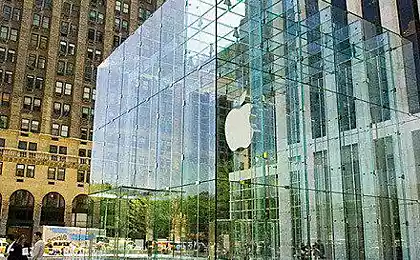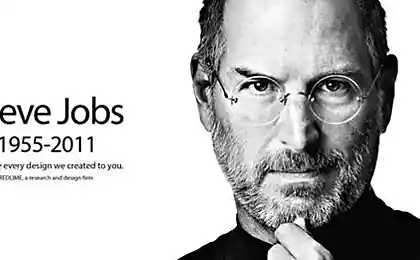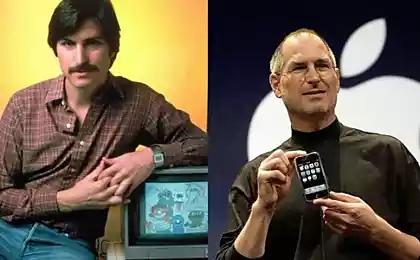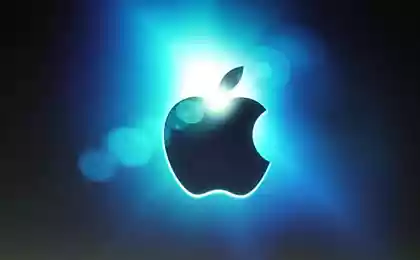582
Matt McInnis: 3 bad habits I learned growing up in the Apple — and how I got rid of them
Entrepreneur at the time, he worked for seven years in the Apple and recognized, that not all the lessons of this great company turned out to be useful for startups.
I participated in the revival of Apple in the 2000s years. Then I was surrounded by fantastic people, I realized how important to limit the concentration and the presence of a powerful brand that allows you to shape the expectations of consumers. It was a phenomenal place to start my career. But for me, as a founder of a startup, it was absolutely horrible workout.
Undoubtedly, the fundamental approaches of Apple for many things — an important component of the success of the company. And that's why many startups are trying to repeat them. But in the process they realize that the company culture is of great importance. This culture outside of an Apple is very often misunderstood. Even I, a person who worked at Apple for seven years, did not realize that this culture is impossible — until I tried it myself and have not failed.
It took years for me to get rid of three bad habits that I grafted in the Apple is bad for the founder and leader of a startup.

1. Installation privacy
From the very first day in the Apple you are constantly reminded how important privacy is. From an external point of view, everything is simple and strict: do not talk with anyone outside the company about its Affairs. But Apple also demanded that the employees are not communicated with each other for specific projects until those projects will not be formally "opened".
This often took place in the form of secret meetings and non-disclosure documents, which were signed by the employees. Sometimes I was summoned to these meetings, so I signed questionable from a legal point of view, but psychologically effective documents, which reminded me of my obligation to maintain confidentiality. All present indicated that we should not share the details with colleagues, even with direct managers, if they have not signed the appropriate document.
Of course, it's not contributed to the open cooperation. Some people information, others do not. The fact that you knew meant your position in the hierarchy. And questions like, "do you have access?" was not so much a tool of protection of information as a way to emphasize its influence.
So when I launched my company, I was afraid to openly share information. I was afraid to speak to reporters. I made the first employees to sign hard documents to disclose. But it soon became clear that the costs of this secrecy outweigh any benefits. Often said that instartups it's the transparency. And it's true. Without it, you will not be able together to solve problems, gain the trust of people, and smart employees will not be able to make quick, important decisions.
2. Innovation under control
Thanks to its methods of product development and design, Apple has an amazing ability to predict and even accelerate the trends of the consumer market. Steve jobs was able to anticipate customers ' needs before they themselves realize.
Apple, of course, listened to the consumers, but all the time that I worked there in the marketing service, the company is unkindly treated to focus groups and beta testing. New employees are frequently invited to conduct focus groups, but the old-timers sharply replied: "Apple does not do this".
Shortly after I launched my own company Inkling, we realized that this approach to innovation does not give us enough information to development. (And I, alas, not Steve jobs.) We needed a user-enthusiasts and beta testers to help us understand our own products. And we realized that unlike Apple, we are not able himself to form a representation of consumers about the technology. My own instincts are not always worth trusting. We had to admit to us the external world, so he could help us. Startups, I'm pretty sure need openness.

3. Rigid design
When I worked at Apple, all tasks are carefully planned and delegated to teams to achieve focused and very clear result. Complex tasks were divided into work streams with labeled endpoints. This system was often effective and ruthless. Each individual employee had to perform his work intently and carefully. There was no place for personal interests. Don't like something — there's a whole queue of people ready to take your place.
It's not necessarily a bad thing: employees have clear goals and a clear path to success. But such work can become monotonous, especially for inventive people. True, true creativity happens only in selected groups that are subordinate to senior management.
In startups, success often comes more randomly. Such insights help us to see new market opportunities. And the curiosity and originality of the employees in this process is very important. I learned that, although clear guidance is extremely important, unforeseen by-products of the work of the team (call them if you want, happy accidents), which Apple just a nice addition to the main process in a startup is critical. Kakafoni, personal projects and everything in the Apple special joy not the cause, but in our company, are key components of business management.
Start-UPS benefit from open communication. Almost any hit in the press for a startup is good, and any interaction between intelligent people can open up a new opportunity. It is very important from the outset to communicate with consumers. But Apple, when I got there, not long ago was a startup. So it was not the best preparation for starting your own new business.
Also interesting: the Startup for $100: 5 bestsellers about how to start your own business without the cost
35 companies rejected his work, he is now one of the founders of a startup to a billion
And one thing which Apple did not learned, in the end, saved my project: in most cases, common sense and conventional rules — a good starting point.
But you can't just use these rules: you have to start experimenting, and doing it openly and publicly.published
Source: ideanomics.ru/articles/7913
I participated in the revival of Apple in the 2000s years. Then I was surrounded by fantastic people, I realized how important to limit the concentration and the presence of a powerful brand that allows you to shape the expectations of consumers. It was a phenomenal place to start my career. But for me, as a founder of a startup, it was absolutely horrible workout.
Undoubtedly, the fundamental approaches of Apple for many things — an important component of the success of the company. And that's why many startups are trying to repeat them. But in the process they realize that the company culture is of great importance. This culture outside of an Apple is very often misunderstood. Even I, a person who worked at Apple for seven years, did not realize that this culture is impossible — until I tried it myself and have not failed.
It took years for me to get rid of three bad habits that I grafted in the Apple is bad for the founder and leader of a startup.

1. Installation privacy
From the very first day in the Apple you are constantly reminded how important privacy is. From an external point of view, everything is simple and strict: do not talk with anyone outside the company about its Affairs. But Apple also demanded that the employees are not communicated with each other for specific projects until those projects will not be formally "opened".
This often took place in the form of secret meetings and non-disclosure documents, which were signed by the employees. Sometimes I was summoned to these meetings, so I signed questionable from a legal point of view, but psychologically effective documents, which reminded me of my obligation to maintain confidentiality. All present indicated that we should not share the details with colleagues, even with direct managers, if they have not signed the appropriate document.
Of course, it's not contributed to the open cooperation. Some people information, others do not. The fact that you knew meant your position in the hierarchy. And questions like, "do you have access?" was not so much a tool of protection of information as a way to emphasize its influence.
So when I launched my company, I was afraid to openly share information. I was afraid to speak to reporters. I made the first employees to sign hard documents to disclose. But it soon became clear that the costs of this secrecy outweigh any benefits. Often said that instartups it's the transparency. And it's true. Without it, you will not be able together to solve problems, gain the trust of people, and smart employees will not be able to make quick, important decisions.
2. Innovation under control
Thanks to its methods of product development and design, Apple has an amazing ability to predict and even accelerate the trends of the consumer market. Steve jobs was able to anticipate customers ' needs before they themselves realize.
Apple, of course, listened to the consumers, but all the time that I worked there in the marketing service, the company is unkindly treated to focus groups and beta testing. New employees are frequently invited to conduct focus groups, but the old-timers sharply replied: "Apple does not do this".
Shortly after I launched my own company Inkling, we realized that this approach to innovation does not give us enough information to development. (And I, alas, not Steve jobs.) We needed a user-enthusiasts and beta testers to help us understand our own products. And we realized that unlike Apple, we are not able himself to form a representation of consumers about the technology. My own instincts are not always worth trusting. We had to admit to us the external world, so he could help us. Startups, I'm pretty sure need openness.

3. Rigid design
When I worked at Apple, all tasks are carefully planned and delegated to teams to achieve focused and very clear result. Complex tasks were divided into work streams with labeled endpoints. This system was often effective and ruthless. Each individual employee had to perform his work intently and carefully. There was no place for personal interests. Don't like something — there's a whole queue of people ready to take your place.
It's not necessarily a bad thing: employees have clear goals and a clear path to success. But such work can become monotonous, especially for inventive people. True, true creativity happens only in selected groups that are subordinate to senior management.
In startups, success often comes more randomly. Such insights help us to see new market opportunities. And the curiosity and originality of the employees in this process is very important. I learned that, although clear guidance is extremely important, unforeseen by-products of the work of the team (call them if you want, happy accidents), which Apple just a nice addition to the main process in a startup is critical. Kakafoni, personal projects and everything in the Apple special joy not the cause, but in our company, are key components of business management.
Start-UPS benefit from open communication. Almost any hit in the press for a startup is good, and any interaction between intelligent people can open up a new opportunity. It is very important from the outset to communicate with consumers. But Apple, when I got there, not long ago was a startup. So it was not the best preparation for starting your own new business.
Also interesting: the Startup for $100: 5 bestsellers about how to start your own business without the cost
35 companies rejected his work, he is now one of the founders of a startup to a billion
And one thing which Apple did not learned, in the end, saved my project: in most cases, common sense and conventional rules — a good starting point.
But you can't just use these rules: you have to start experimenting, and doing it openly and publicly.published
Source: ideanomics.ru/articles/7913























